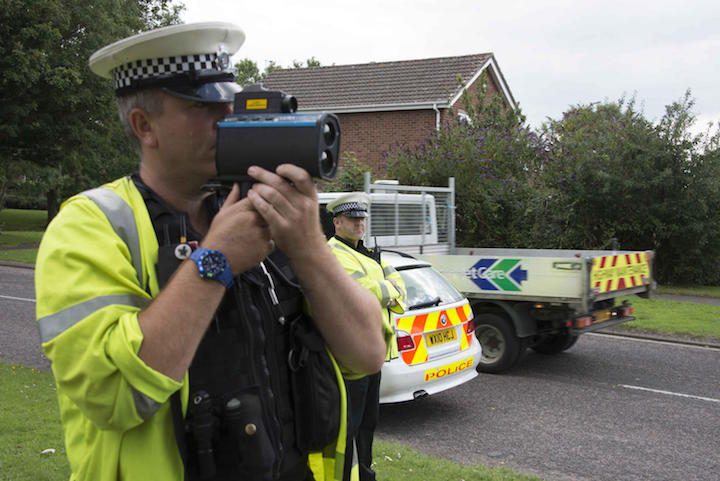Pay-as-you-go insurer Veygo, has revealed the UK regions which see the highest number of speeding fines.
New data obtained by Veygo from a Freedom of Information request of police forces recorded speeding fines, has revealed the hotspots where the offence is committed the most.
Of the 25 police forces that responded, over one million (1,049,640) speeding fines were issued in 2022. With a speeding offence carrying a minimum of three points and a £100 fine2, this means speeding cost motorists at least £10 million in 2022.
Some police constabularies had recorded speeding fines by licence type, and according to the study of those that did, Veygo found that full license holders accounted for one in five (22%)4 of all speeders, and learners on provisional licences were just 0.13%. The remainder is unknown or foreign/non-UK licenses.
Men were also found to be twice as likely on average, to be speeding on the roads last year than their female counterparts, with 462,950 men fined, compared to 214,373 women drivers. Age was found to have more regional differences across the UK however, with some regions like Bedfordshire, Essex, and Hertfordshire recording 40s as the most common age bracket speeding, but Dorset recorded a more senior 50–59-year-old speeder as the average offender; busting the ‘speed racer’ stereotypes often associated with younger driver.
Following the announcement of the annual speeding figures, Veygo is reminding all drivers and their passengers of the importance of not rushing on the roads in 2024, so their licenses and freedoms aren’t compromised, and they don’t risk higher insurance premiums.
Fleets should back wider use of 20mph limits in urban areas on risk management grounds, says FleetCheck.
Managing director Peter Golding said that while the subject had become politically controversial, the argument for car and van operators was quite clear cut.
“When the Welsh government introduced their blanket 20mph limit last year, they did so on the grounds that it would save lives every year. It’s a position that very much chimes with fleet management best practice.
“Obviously, the speed limit on any road is a balance between journey time and accident risk, but it is very difficult to imagine that any vehicle operators are having their overall efficiency reduced in urban areas by a switch from 30mph to 20mph.
“In risk management terms, the case for wider use of 20mph is pretty much clear cut and because it is likely to reduce accidents, should be welcomed by fleets where it is proposed to replace current 30mph limits.”


